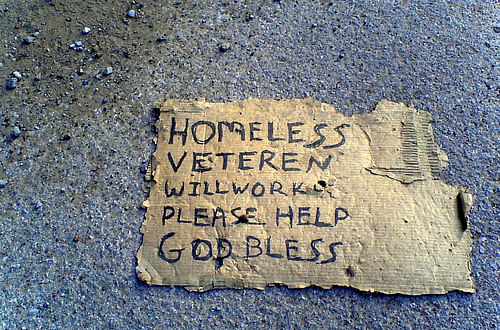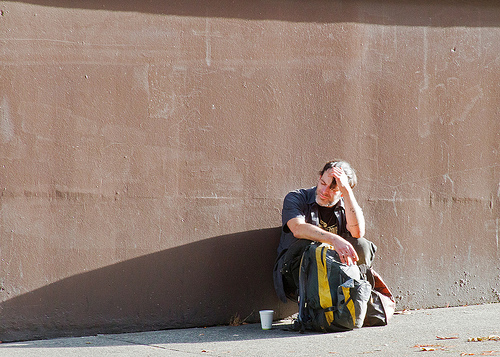Why work?
Last week a couple of nice police officers approached me at the rescue mission to discuss a problem. People are hanging out at the park in downtown on Main Street. I know. Your first thought is, “Well, it’s a park isn’t it?” But it’s not just people at the park. It’s “those people” at the park. Your next thought might be, “Isn’t the mission on Kentucky Street?” Yep. We’re not even neighbors to Spiva Park. But that’s okay. The police officers were nice and I understood. People are complaining and fearful of the homeless.
I think the question that must be answered is “Why not look for a job instead of hang out in the park?” And although I doubt it was the answer they sought, the officers kindly entertained my discussion on the connection of a growing welfare state to a derailed motive and disincentive to work.
What are the motives that drive us to work every day? Providing for our family, comfort, even luxury might be common responses. Even more base and important are simply food, shelter, and clothing. Hunger drives a person to food, rain drives him to shelter, and winter to layer up. The motive to work is clear. However, human nature always tends toward the easiest road to meet these basic needs. And few would disagree that the easiest road right now is “Welfare Way.” If we don’t significantly narrow this tax payer toll road, we’ll see a continued loss of motivation to work. Maybe we should consider (and educate) the more virtuous motive that is the flip-side of self-sufficiency. If we’re not “self-sufficient,” then we’re “other-dependent.” Consider the words of the apostle Paul to the Thessalonians, “We worked night and day that we might not be a burden to any of you” and the instruction to “…work with your hands…so that you may be dependent on no one.” A thriving city with a healthy economy is one that embraces this virtuous aspect of self-sufficiency, that is not being a burden to or dependent on another. The homeless man who gave me his food stamp card four months ago gets this concept. To date, the card has accrued more than $800 but he has no interest in it because he understands that virtuous side to self-sufficiency. Unfortunately, a derailed motive to work is not the only road block to fixing the problem. The welfare benefit is actually incentivizing laziness.
A couple of months ago, the Cato Institute completed a study, “The Work Versus Welfare Trade-Off: 2013, An Analysis of Welfare Benefits by State.” Applying welfare rules from each state to a virtual family of a single parent and two children, the authors summed the welfare from various programs like SNAP, TEFAP, LIHEAP, TANF (food stamps, food commodity, utility assistance, cash) and a few others for which the virtual family would be eligible. In Missouri, this household could receive a total of $26,837 in benefits annually. Not only does that equate to more than 12 dollars per hour, but the total package exceeds 130% of the federally defined poverty level for that family. Don’t feel too bad. Missouri is only one of 35 other states in which welfare is beating a minimum wage job. So for many the question becomes, “Why work?” When you combine a derailed motive with the welfare disincentive, maybe the best thing to do is just go hang out in the park.




